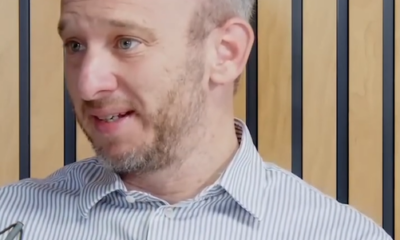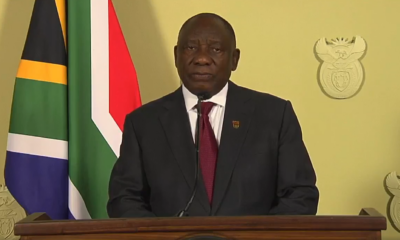
OpEds

SA’s second new dawn – but clock ticking
With remarkable ease, South Africa has entered a new political era following the May elections.
The deep decline in voter support for the African National Congress (ANC) necessitated a new governing dispensation and a critical choice by the ANC to seek out a co-operative agreement with largely centrist parties anchored by the Democratic Alliance (DA). It has set the country – at least for the moment – on a new experimental course of multiparty decision-making.
Officially termed a government of national unity (GNU) but led by the ANC, a new Cabinet, Parliamentary standing committees, and key office bearers now encompass a mix of the 10 participating parties.
Since voters clearly indicated that they had lost substantial faith in the ANC but were also unable to commit in large numbers to opposition parties, the outcome provides some hope that a centrist political grouping can begin to undo some of the severe damage inflicted over the past 15 years and rebuild and reform not only a stagnant economy but also dysfunctional state enterprises and governance steeped in corruption, graft and patronage.
For jaded South Africans, often cynical about their country’s dismal political performance, the outcome was, at the very least, the best possible option when faced with an alternative of an ANC/Economic Freedom Fighters (EFF)/uMkhonto weSizwe (MK) party coalition. That the ANC, DA, Inkatha Freedom Party (IFP) and seven other parties were able to shut out the more radical and extremist political alternatives should be seen as a victorious outcome of the 29 May vote.
While the business community, which clearly pressured key protagonists to put the country before their own narrow political interests, will be satisfied, this GNU faces immense challenges in its attempt to steer a recovery course for the beleaguered nation.
In macro terms, the very broad cross-party agreement was echoed in President Cyril Ramaphosa’s opening of Parliament address. A relatively impressive synthesis of the 10 participating GNU parties was woven into his address and found broad buy-in from parties that only months ago were lambasting the president for his February State of the Nation Address.
But pleasantries and platitudes need to be met with practical realities. In spite of the appointment of an enlarged Cabinet (executive), key challenges remain.
Within the ANC, Ramaphosa and his confidants have driven the deal with the DA. However, rumblings of discontent continue to emerge from ANC formations like the South African Communist Party, elements within the ANC’s Gauteng leadership, and at local government level, in continued disdain for the role of the DA in government.
Since the ANC had by the latter part of Ramaphosa’s first term sought to enlist the private sector in partnerships to rebuild critical infrastructure, the DA’s ideological support for enhancing the role of business dovetailed exceptionally well. And DA MPs smiled and applauded aspects of the president’s opening address that dealt with related issues.
But make no mistake, the ANC remains fraught with internal divisions that have yet to fully reconcile the ideological divide between those who still see the state as central to economic planning and redistribution, and those who are willing to embrace the private sector and deregulate the economy accordingly.
Certainly, this GNU also throws Ramaphosa a political lifeline with the potential to salvage a legacy after his initial false “new dawn”. Should Ramaphosa be weakened within the ANC, the GNU will feel the internal ANC ructions.
Though the new Cabinet has been sworn in and the DA has taken full and deputy ministerial positions, the new working agreement will require a considerable settling-in period. DA ministers will have ANC deputy ministers, and vice versa. These key positions will need to be relatively in sync to avoid policy and implementation gridlock or even departmental dysfunction.
Similarly, key bureaucrats like directors general and their senior teams need to be onboard with the political shifts, otherwise they too can disable possible progress.
In addition, big policy issues like the National Health Insurance are hotly contested between the ANC and DA. The GNU will be tested over issues such as this, which may demand deep compromise on the side of those with antagonistic views. The conflict-resolution mechanisms will be tested as we progress, and will either undermine the GNU or cement it accordingly.
Internally, the ANC is also going to face Jacob Zuma’s MK party – now regarded as the new official opposition. Together with the EFF, this “progressive caucus” will seek to undermine the GNU at every turn. Criticising the ANC for being “sellouts” to the white liberals will become their mantra, and it could cause unease in rank-and-file ANC members.
Furthermore, the DA, too, must get used to a new way of doing business. Since it now shares governmental responsibility, it will have to review and reform its own modus operandi as it shifts away from critiquing the ANC at every turn. This will be tough given the DA’s historically conflictual relationship, and will require deft communication management to outline to supporters ongoing issues in the GNU.
One controversial issue is that SA’s foreign policy is still largely assigned to the ANC’s world view. Although a more moderating force like the DA will seek to placate a more critical United States over trade benefits, the ANC’s stance on Israel will remain. How the ANC relates to China, the Brics grouping (Brazil, Russia, India, China, South Africa, Iran, Egypt, Ethiopia, and the United Arab Emirates), and the Global South may also require deft internal management with the DA and others.
With these challenges come opportunities. Since GNU parties represent more than two-thirds of voter support, there is certainly consensus representation in Parliament.
As such, parties can begin a process of finding each other and building on common ground.
But the pressure is on, and the GNU shouldn’t just be a technocratic public display of political “bromance”. With investor sentiment supportive, there’s a window for real reform, implementation, and performance enhancement. The GNU requires tangible results rapidly. And with less than 24 months to local government elections, the political heat is rising.
Though we should be cautiously optimistic that a better political outcome has been achieved, realists should continue to observe closely the political tides ebbing and flowing. It’s a learning curve for all, but critically, it must deliver for all otherwise the elites can still be upended by mass discontent.
Let’s get down to business!
Daniel Silke is political economy analyst, keynote speaker, and director of the Political Futures Consultancy based in Cape Town.










